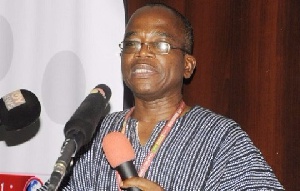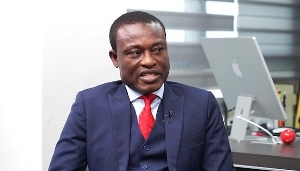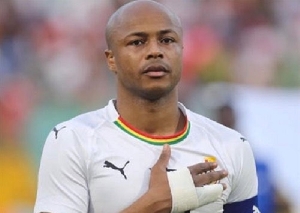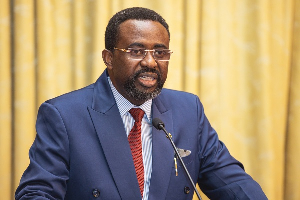The events of November 30th 2018 set my mind thinking. For someone whose lifelong, professional experience and intellectual leanings revolve around the subject of Public Service Media, media ownership, journalism practices and the political economy of communication, the day’s events triggered alarming bells.
On this day, the National Media Commission, NMC was reconstituted and after the commissioners had been sworn in, proceeded to elect their Chairman at their maiden meeting. Then came the news that the representative of the President had been elected to the position of Chairman by a razor-thin margin of 8-9. This was after the first vote had ended in a tie of 8-8.
My interest in this event is not only that the one who cast the deciding vote had not been sworn in at the time and, therefore, raises legitimate questions about whether or not that casting vote should be considered valid. It is more fundamental. It is about the appropriateness of the President’s representative chairing a Commission whose primary mandate is to “insulate the state-owned media from governmental
control” (Art.167(c). It is my considered opinion that this choice, both symbolically and substantively sends very negative signs to anyone interested in the independence of the state-owned media.
Due to our history as a nation, and the struggles that characterised our quest to create an independent, public, communicative space, one can understand why the 1992 Constitution created the NMC and, in addition to ensuring high journalistic standards, assigned it the function of insulating the state-owned media from governmental control.
By and large, the normative expectation is for the NMC to not only regulate, but to set the tone by way of the character, role and conduct of media in the country, and more importantly, lead in the effort to make public media a truly democratic, communicative space in our governance.
For many, the institution of the NMC marked a new era from the period when Presidents and political actors appointed Director-Generals and CEOs of state-owned media, and therefore, tended to exact allegiance from their appointees. It was for this reason that the NMC in 1996 proceeded to court to contest the appointment of Dr Kofi Frimpong as the 10th Director-General of the Ghana Broadcasting Corporation, arguing that the legitimate body to appoint him was the NMC and not the President as had occurred.
The court ruling five years later firmly placed on record, and settled any lingering doubts about the NMC as the rightful appointing authority to the role of the Director- General of the GBC, and by extension, all state-owned media institutions. This was a landmark ruling for media independence, or so many of us thought.
Another significant and related court ruling was in 1993. Known in judicial history as the New Patriotic Party, NPP versus the Ghana Broadcasting Corporation, GBC, the NPP, represented by eminent counsel Nana Akufo-Addo, now President and Peter Ala Adjetey, argued that GBC had reneged on its constitutional obligation to provide equal access to all political parties. The plaintiff argued that by failing to provide them equal opportunity to rebut the Finance Minister’s public arguments concerning the budget the NDC had just presented, the GBC had undermined a critical constitutional obligation.
The court ruled in favour of the plaintiff and by extension, cemented independent, equitable and fair media coverage, scolding the GBC additionally for assuming the paternalistic posture of using its discretion to determine what constitutes “equal opportunities”. If the GBC was confused about what “equal opportunities” meant, Chief Justice Archer clarified it in no uncertain terms, and stopped short at marching GBC out of the courtroom to go and sin no more.
Once again, the rule of law and the pendulum of justice had swung in the direction of media independence and equitable access. More than anything else, this ruling continues to define the conduct of the state-owned broadcaster particularly during elections right to this day.
I highlight these two events not merely for their symbolic value, but also to underline the fact that the struggles to create, and sustain independent communicative spaces have largely been fought between governments, and others ranging from media owners, practitioners to non-state actors. If present day conditions are anything to go by, it will be a grave mistake to assume that the struggles to maintain media independence from both government control and market forces are over.
There are troubling signs that point to the insidious, but steady encroachment of public spaces including the media by political forces. From my personal experience, I can speak to such an occurrence when the NMC terminated without cause, the appointment of the 19th Director-General of the GBC in September, 2018, less than two years into his 4-year contract.
This brazen conduct was without recourse to the findings of their own initiated investigations to ascertain whether the D-G of GBC had approval to implement a decision which from all purposes and intents, was a management issue and steeped in law. To date, the NMC has refused to make public the findings of this investigation which the GBC Board argued had been necessitated by public hue and cry over the payment of television licence fees.
For an institution which is mandated to insulate the media from governmental control, as well as promote free expression and transparency, this is a heinous setback to free expression and media independence. The suspicion of the presence of an “invisible political hand” in this decision is reinforced by rife “rumours” that two duly interviewed and successful applicants to the vacant positions of Directors of Radio and Television at GBC have had their appointment letters suspended upon instructions from political actors.
I do not wish to offend your sensibilities by placing on record the assigned reason for this suspension. Suffice it to say it is trivial, Suffice it to say it is trivial, vexatious and taflatse, nonsensical. Consequently, the Governing Board are awaiting directions as to how to proceed on the matter.
If this is the context within which the NMC is to exercise its regulatory authority, then having the representative of the President as chairman should clearly alarm anyone who is interested in media independence. The composition and character of the NMC is even more important if one takes into account the enormous powers they are expected to exercise once the Broadcasting Bill becomes law.
I am arguing that we stand at what McChesney (1999) calls a “critical juncture”. It is critical because the future of media has become multifaceted, and as ccross-media ownership, convergence and digitalisation are thrown into the fray, the NMC must be placed under stricter scrutiny to ensure they have not just the competence, but also the right temperament and character to navigate the country through the digitally stormy times
ahead.
My advise to the new NMC is to as quickly as possible rid itself of this perception of political interference so eloquently bequeathed unto them by the immediate past NMC, and to redeem their image by correcting this anomaly of having the President’s representative as its chairman. It is a perfidious act. Let me add that my call to correct this anomaly must not be misconstrued as a suggestion that Mr Yaw Boadu-Ayeboafo does not have the credentials or qualities in his own right to be the Chairman of the NMC. He does. In fact he would have been an ideal candidate if he was not representing either the Presidency or the Advertisers and Business interest on the Commission. This leads me to my last point.
I find that increasingly, policymakers are defining “public interest” as that which interests the public. This definition has the subtle frame of commoditising the product such public institutions generate, and by extension, marking their relevance by their market share instead of their program reach. Whiles, this danger might not be squarely within the purview of the NMC, may I humbly prompt them to keep a close eye on this turn of events especially with respect to the Digitalisation of Television and the political economy surrounding its impending legislation?
The NMC should be seen to be providing leadership in the roadmap to the digital migration regime as well as how public service media are funded so as to truly reflect their ethos and democratic role. I fear that if it fails to keep its eye on these balls, we will as a nation find ourselves in a double bind, where the locus of power to control media and its conduct would have merely shifted from political power to the power of the purse. If political control of public service media is unwelcome, neither should market control.
Opinions of Wednesday, 26 December 2018
Columnist: Kwame Akuffo Anoff-Ntow



















